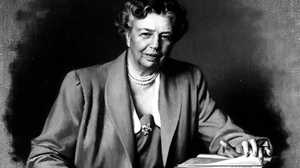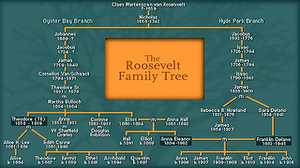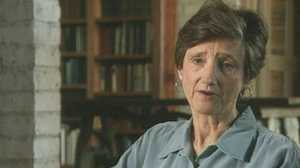The Man Behind Roosevelt

Louis McHenry Howe made a career out of being "the man behind Roosevelt." His closeness to Franklin and Eleanor Roosevelt made him somewhat of a curiosity. Certainly, his appearance was not that of a statesman, the type of man expected to be the right hand of the president of the United States. Instead, he was fragile and small in stature, sickly and disheveled in appearance, described in the press as "ghoulish" and a "medieval gnome," Howe inspired legends concerning his power over the president. Making light of the name-calling, Howe responded by printing personal cards with the title, "Colonel Louis Rasputin Voltaire Talleyrand Simon Legree Howe"; playing on the many famous characters to whom he had been boldly likened. He favored The New York Times' description of him as "The President's Other I." The New York Herald Tribune stated of him, "His loyalty is not to himself, or to an abstract ideal of government, but solely to Franklin D. Roosevelt." " He was in truth one of the most influential characters in the making of Franklin and Eleanor Roosevelt's political careers and perhaps most widely known under the title, "king-maker."
Louis Howe was born into one of the most influential and prosperous families in Indianapolis, Indiana, on January 14, 1871. His father, Captain Edward Porter Howe, and mother, Eliza Blake Ray, were both descendants of Indiana's first families. Yet Howe did not enjoy a privileged life for long. His father lost everything in the Panic of 1873, and the family had to share a relative's home in Saratoga Springs, New York. Edward Howe became a reporter for The Saratogian, the local Republican newspaper, and eventually became the owner of the Sun. At age 21, Howe became the co-editor and proprietor of his father's paper. In 1898 before being sent to the Philippines to cover the Spanish-American War, Howe eloped with Grace Hartley, a student at Vassar college. The couple later had three children although one would not survive infancy.
As a reporter, Howe had a talent for "knowing his beat," possessing a sense of where to find the facts. Often, his tenacity led to criticism. A reporter once said of him, "Those who don't know Louis Howe very well sometimes see him as a gruff, abrupt, rude individual. Those who do know him very well sometimes see him in the same light."
The strength of his persona contrasted sharply with his physical weakness. Since he was a child, he had suffered from multiple ills. Always delicate, he was plagued by a terminal heart condition, severe asthma and attacks of bronchitis, and, for most of his life, had to wear a ponderous truss to prevent hernia injury. In addition, a disastrous cycling accident in his teenage years left black pitted scars which permanently disfigured his face. His appearance and physical handicaps caused him to once describe himself as "one of the four ugliest men in the State of New York." Yet, while he cared little for his physical appearance -- constantly dusted with Sweet Caporal cigarette ash and often wearing the same clothes for consecutive days in a row, much to Eleanor Roosevelt's disapproval -- he took great care in observing others. It was this talent, which Eleanor called his "sixth sense," that drew him to Franklin Roosevelt.
Howe first met Franklin D. Roosevelt in 1911 while covering the latter's bold senatorial fight against Tammany Hall, the seat of corrupt party politics in New York. Roosevelt's persistence and eventual victory garnered Howe's admiration. Howe said of their initial meeting, "I was so impressed with Franklin Roosevelt... his seriousness, his earnestness, his firm dedication to his cause, that from that moment we became friends -- and almost at that very first meeting I made up my mind that he was Presidential timber and that nothing but an accident could keep him from becoming President of the United States." Howe realized how his experience and maturity could complement Roosevelt's enthusiasm and charisma to effect a powerful political team -- he was, as he put it, providing the "toe weights," the grounding for Roosevelt's career. When Roosevelt became assistant secretary to the navy, a privileged gentleman's position, Howe steered him away from the fashionable places of the elite and instead directed him to the Navy Yards to monitor labor conditions personally. This earned Roosevelt the respect and cooperation of labor leaders as well as valuable insights into the minds and characters of his future constituents.
Howe directed Eleanor in a similar manner. It was he who urged that she hold regular press conferences for women while in the White House (an unprecedented activity for a first lady), coached her on political speeches, and in one exceptional instance, sent her to walk and converse among the disgruntled veterans of the Second Bonus Army in 1933. Eleanor's efforts in this instance helped to defuse a volatile situation and won significant support for the president and his administration. At first disturbed by Howe's appearance and bad habits, Eleanor gradually came to see his devotion to her husband. Howe and Eleanor enjoyed a friendship and she credits him with greatly contributing to her "political education."
Certainly, power and success were important to Howe. He had little regard for those who were not vital to Roosevelt's political career. As Eleanor Roosevelt stated of him, "He made few personal friends and he judged most of those by their loyalty to ‘The Boss' as he called my husband." It is widely accepted that as an influential political adviser and personal friend of Roosevelt, Howe was supreme. To what degree and in exactly what areas his influence was manifested, however, is a point of much dispute. As one biographer states of him, "He was the ‘most private' of the President's private secretaries. He talked with Roosevelt daily; no one knew what they said. On a given matter he might have immense impact - or none at all." As Eleanor and her husband's advisers assert, Howe was most often the "no" man who relentlessly challenged the president's politics. Various historians argue that many of the political mistakes of the Roosevelt administration in the years after Howe's death can be attributed to the absence of his incessant criticism and accurate gauging of public opinion. After all the speculation it is evident that Howe's role was profound. Upon Howe's death in 1936, Roosevelt assigned him a final title, that of "Devoted friend, adviser and associate of the President."







